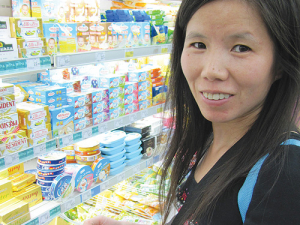Birth woes
OPINION: What does the birth rate in China have to do with stock trading? Just ask a2 Milk Company.
 KPMG’s Ian Proudfoot believes NZ agribusiness needs partners well connected and if a Chinese partner can do this, that is positive.
KPMG’s Ian Proudfoot believes NZ agribusiness needs partners well connected and if a Chinese partner can do this, that is positive.
Dairy and milk processing are the New Zealand destinations for overseas investors’ wealth -- not sheep and beef, says a report on cash inflows of the last two years.
Dairy attracted $1.3 billion -- 28% of the $3.4b invested in agri -- whereas sheep and beef ventures attracted a mere $300 million (9%). China was the single-biggest overseas investor in NZ dairy and sheep and beef.
The report, prepared by KPMG with the Overseas Investment Office, shows that between January 2013 and December 2015 about $3.4b was invested in NZ by overseas companies and individuals in a range of agribusiness ventures. This accounted for 13% of the $26.3 billion invested in various NZ sectors including real estate, energy and financials.
China was the largest investor in dairy but France (13%) and the USA (9%) were also in the mix. In sheep and beef, investment from China/Hong Kong was the highest (15%), then Japan (13%) and the US (10%).
KPMG’s global head of agri, Ian Proudfoot, says while China is a dominant investor in dairy, the US, Canada and Europe are also big in other agri-related ventures.
“China is certainly the biggest investor in dairy now, but I’m not sure this will be case in the future,” he says. “What NZ wants is a balanced portfolio of investors, in particular those who want to drive and create value from their investments here.”
Proudfoot refers to concerns in NZ about Chinese investment, the influence of the Chinese state on investment policy and that country’s focus on food security.
“Through Yili they have invested in the Oceania Dairy business in the South Island, but that asset would not have been built without Chinese investment,” he told Rural News. “Without the Yashili investments at Pokeno that would not have happened. They are creating jobs and opportunities for us to produce into higher value product streams.”
Proudfoot believes NZ needs partners well connected to markets and says if a Chinese partner can do this, that is positive.
He also notes concerns expressed about Chinese-owned companies in NZ putting pressure on local ones in the Chinese market.
“I don’t see that as a problem although the nature of the Chinese economy is about connection and relationship. So if you have good relationships and strong connections, that facilitates doing business in the Chinese market.
“So maybe the Chinese-owned companies in NZ have an easier track, but I don’t see them making it difficult for others.”
Proudfoot refers to interesting statistics on the amount of liquid milk going into China: Germany is sending 4L for every 1L NZ sends.
“What the Chinese are looking for is high-quality dairy products that meet their needs and I think they are going to look to NZ to increase the delivery of this product.”
Sheep and beef has potential and needs overseas investment, Proudfoot says.
“Some farmers have been sitting on large amounts of capital in their land and are not highly geared.
“From an investment perspective, they are relatively ‘lazy businesses’ and potentially that means there is opportunity to gear these businesses up and invest more in technology.”
However, Proudfoot concedes getting technology into the red meat sector is complex, requiring care in assessing risks and benefits to ensure investments are fit for purpose.
Surprisingly the report says most freehold land being bought by overseas investors is in Canterbury, Otago and Southland – 49% of the land purchased.
Proudfoot says the positive story from the research is that offshore entities see NZ market as a place worth investing in.
Expect greater collaboration between Massey University’s school of Agriculture and Environment and Ireland’s leading agriculture university, the University College of Dublin (UCD), in the future.
A partnership between Torere Macadamias Ltd and the Riddet Institute aims to unlock value from macadamia nuts while growing the next generation of Māori agribusiness researchers.
A new partnership between Dairy Women’s Network (DWN) and NZAgbiz aims to make evidence-based calf rearing practices accessible to all farm teams.
Despite some trying circumstances recently, the cherry season looks set to emerge on top of things.
Changed logos on shirts otherwise it will be business as usual when Fonterra’s consumer and related businesses are expected to change hands next month.
Reflecting on the past year, Horticulture New Zealand chief executive Kate Scott says there has been a lot to celebrate.

OPINION: Here w go: the election date is set for November 7 and the politicians are out of the gate…
OPINION: ECan data was released a few days ago showing Canterbury farmers have made “giant strides on environmental performance”.